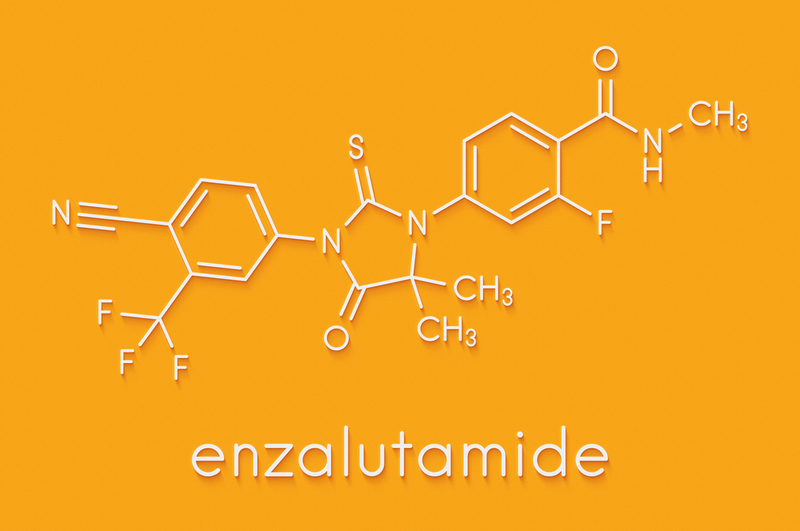A drug that improves survival for men with metastatic hormone-sensitive prostate cancer
ANI Jun 04, 2019
A new study reveals that Enzalutamide, an oral androgen receptor inhibitor can yield better outcomes and increase survival for men with metastatic hormone-sensitive prostate cancer (mHSPC).

This study was published in the journal 'New England Journal of Medicine'. Interim analysis of the ANZUP-led international randomized, phase III ENZAMET trial demonstrated that among men with mHSPC who received testosterone suppression, those also given enzalutamide survived longer overall than those who were also given standard nonsteroidal androgen receptor inhibitors.
Among trial participants, 80% of those treated with enzalutamide were alive after three years compared to 72% of the men who received the standard inhibitors. "These findings are truly practice-informing, adding an effective drug option in treating mHSPC," said study co-chair Christopher Sweeney. "Adding enzalutamide to testosterone suppression in men with mHSPC can give much better cancer control and much longer survival," Sweeney added.
"This is true both for patients with a high burden of disease, with multiple bone metastases or liver metastases, as well as men with a lower burden of disease."
"The benefits of enzalutamide had already been established for prostate cancers that are no longer responding to hormonal therapy," said Ian D. Davis, study co-chair.
He continued, "The actual result in patients starting hormonal therapy, noting patients had a 60% improvement in the time it takes to detect cancer growing again along with a 33% increased chance of survival, was far higher than we expected." The trial focused on how well enzalutamide compared to or combined with, docetaxel, a chemotherapy drug approved for the condition that was given to about 45% of trial participants, could work.
"Enzalutamide and docetaxel are both active and are reasonable alternatives but have different side effects, costs, risks and benefits," Sweeney said.
"Early analysis suggests that among men with a lower burden of metastatic disease given testosterone suppression, enzalutamide may offer more benefit than docetaxel," he added.
Combining testosterone suppression with both enzalutamide and docetaxel delayed time for the disease to progress, but the researchers must follow up on trial participants to see if this triplet combination also improves quality of life and overall survival. Side effects known to be associated with enzalutamide were observed and resulted in a modest increase in adverse events compared to men receiving one of the standard non-steroidal anti-androgens.
Sweeney added that about 95% of men are diagnosed with localized disease via prostate specific antigen (PSA) screening. Most are cured by surgery or radiation, and some don't need treatment. The remaining 5% of patients initially present with very aggressive disease, and many other patients relapse after treatment for localized disease but tend to have slower disease progression. The above trial enrolled 1,125 participants and followed them for a median of 34 months.
-
Exclusive Write-ups & Webinars by KOLs
-
Daily Quiz by specialty
-
Paid Market Research Surveys
-
Case discussions, News & Journals' summaries